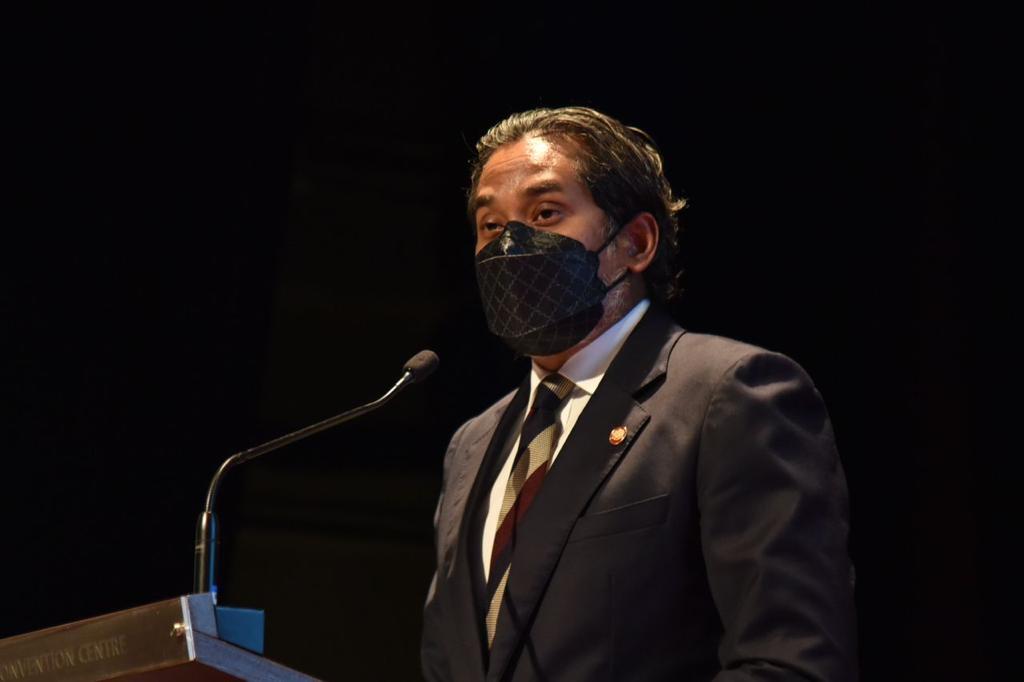When Health Minister Khairy Jamaluddin first announced plans to ban smoking for future generations, anti-tobacco advocates hailed his ambitious ideas of finally ending the scourge of tobacco in Malaysia.
A draft bill has been languishing in the Ministry of Health (MOH) for years, ever since the Cabinet first decided nearly two decades ago in 2003 to create a standalone Act to regulate tobacco, as tobacco control regulations are currently subsidiary legislation under the Food Act 1983.
The political will to reduce smoking – nearly half of adult Malaysian men smoke – didn’t seem to be there throughout the various administrations.
But in Khairy, a no-nonsense politician who had big ideas about health care reform, anti-tobacco activists saw someone who could realise their dream of going head on against Big Tobacco.
Yet – despite telling the World Health Organization (WHO) in Geneva last January 26 about Malaysia’s proposed “generation end game” (GEG) to smoking, the first time Malaysians ever heard about it – Khairy did not release the draft bill to MPs, stakeholders, or the general public before formally tabling the Control of Tobacco Product and Smoking Bill 2022 in Parliament six months later on July 27.
At MOH’s April 7 briefing on the tobacco control bill to the Dewan Rakyat special select committee (PSC) on health, science and innovation, which is chaired by Bandar Kuching MP Dr Kelvin Yii, the draft bill was not presented to the bipartisan committee either.
The only specific details about the bill that MOH gave the PSC briefing – as per the PSC’s report on the Control of Tobacco Product and Smoking Bill 2022 – were proposed penalties for the offences of sale of tobacco and vape products to the GEG group, and possession and use of such products by the GEG group, among other offences.
Alarmingly, MOH back then had proposed a maximum of two years’ imprisonment, a fine of up to RM10,000, or both for the offences of smoking or vaping, or possession of tobacco and vape products, by individual users born from January 1, 2005, upon conviction.
The final version of the bill presented to Parliament shifted the proposed GEG implementation to the 2007 generation and imposed a maximum fine of RM5,000, without jail terms, for the offences of purchase, possession, and use of tobacco and vape products, and smoking or vaping, by individuals born from January 1, 2007.
Although Malaysia does not routinely publish draft bills for public feedback before formal tabling in Parliament – unlike mature democracies like the United Kingdom or New Zealand – Khairy perhaps should have taken the unconventional step to do this for the tobacco bill, given the nature of his radical proposal for a generational tobacco ban.
Or at the very least, he could have shown the draft bill to the PSC – whose proceedings are classified under the Official Secrets Act – so that the parliamentary committee could spot red flags early and internally recommend revisions to the bill for the best possible support in the House.
Throughout the past six months, MOH did not hold town hall meetings with ordinary Malaysians across backgrounds or create a public consultation process on its proposed generational tobacco ban.
Instead, Khairy just held a few government events with the Education Ministry and the Women, Family and Community Development Ministry on GEG initiatives named Gegar-18 and Gegar Wanita respectively and appeared to mainly focus on consulting health and anti-tobacco groups, who would already be inclined to give their support anyway.
New Zealand Consulted Over 5,000 People For A 5-Million Population
In contrast, New Zealand’s MOH opened public consultations on its “Proposals for a Smokefree Aotearoa 2025 Action Plan” from April 15 to May 31, 2021, where more than 5,200 people and organisations engaged with the consultation process, either through written submissions or by attending community meetings.
The majority of submissions supported introducing a “smoke-free generation policy” in New Zealand, though both sides said they needed to see a clearer plan for implementation and enforcement before they could give their full opinion.
New Zealand consulted over 5,000 groups and individuals for a population of about five million. An equivalent for Malaysia means consulting 32,000 people for our population of 32 million.
So when Malaysia’s tobacco bill was finally published after tabling last July 27, it was no surprise that its various provisions – such as wide enforcement powers and the criminalisation of individual users, most of whom would be minors in the early period of GEG implementation – sparked public outrage.
Criminal and human rights lawyers – who routinely represent victims of the State – came out swiftly on Twitter to condemn the tobacco bill’s proposed law enforcement powers of stop, search and seizure, including without warrant, in private residences and vehicles; body searches; bag checks; and access to information on one’s personal device like phone or computer.
After Opposition Leader Anwar Ibrahim met Prime Minister Ismail Sabri Yaakob to discuss the tobacco control bill, the government decided not to move for a vote in the last few days of the current Parliament meeting on the legislation that MPs only sighted a week earlier.
Instead, Khairy told the House yesterday that the bill would be sent to a newly formed PSC – as suggested by Anwar in his letter to the PM – to propose recommendations for revisions to the bill before the first day of the next Dewan Rakyat meeting scheduled in October.
Three Lessons: Context, Care, Communication
The lessons from this episode – which saw tobacco control advocates attacking allies and ignoring concerns of privacy violations, breach of constitutional protections, and the possible creation of a police state – are clear.
Firstly, public health policies need to take into account the culture and context of the implementing country.
While problems cited by some MPs, like the illicit cigarette trade, are Big Tobacco talking points – which raises questions on whether certain legislators have received political funding from the industry – any public health policy, including tobacco control, must consider issues of implementation.
In a country like Malaysia – where corruption is rife, double standards in law enforcement exist, and police powers are not subject to strict checks and limits – harsh penalties are more likely to lead to abuse of power and bribery from non-compliance.
This is not to say that we should not have any regulations or criminal penalties whatsoever; rather, any public policy designed must take into account Malaysia’s corruption landscape, ensure strict and fair enforcement of the law, and figure out how Malaysians can comply to the best of their ability.
Secondly, public health policies must be patient-centred and treatment-focused, i.e: care, not criminalisation.
While prohibitions may work, this should only be used as a last resort and as a secondary tool to achieve the objectives of improving personal and public health, taking into account issues of inequity and disproportionate impact on low-income and vulnerable groups.
Children and youths from low-income households – unsupervised by parents working multiple jobs – may not be educated on the harms of tobacco or understand why smoking will be forever illegal for them, since they’re likely to have parents who smoke.
Unlike Malaysia, New Zealand’s GEG proposal only prohibits the sale, supply, and delivery of tobacco products to the next generation born from 2009, without any prohibitions of smoking, possession, or purchase by the individual user.
New Zealand’s Smokefree Environments and Regulated Products (Smoked Tobacco) Amendment Bill – amid smoking prevalence of just 10.9 per cent compared to Malaysia’s 21.3 per cent – also does not contain most of the wide enforcement powers contained in Malaysia’s Control of Tobacco Product and Smoking Bill.
In the related issue of drug addiction, advocates have always called for decriminalisation and to treat addicts as patients, rather than criminals. Malaysia’s success story in harm reduction and methadone programmes for opioid-dependent people is testament to this.
Thirdly, communications and public consultations are key to any public policy. Despite good intentions by policymakers and legislators, a public policy is doomed to fail if it is not communicated clearly ahead of time to not just people in power, but to ordinary citizens, businesses, and civil society who would be impacted the most.
Public feedback should not be seen as an inconvenient or tedious process that could lead to the strike-down of proposed legislation or policies.
Instead, public communications should be frank and honest about parts of a policy that could be seen as controversial, but communicated in a way that addresses concerns and explains why those parts are necessary.
The Way Forward
Anti-tobacco activists should not be disheartened by the delay in the passage of our long-awaited tobacco control law. Instead, they should take this opportunity to work with certain MPs or even state assemblymen to run town hall sessions on the GEG across Malaysia, from rural to urban constituencies in every state.
MOH should also consider opening a public consultation process on the tobacco control bill over the next few months.
The days of government knows best were supposed to have been over a long time ago.
It is not enough to propose public health policy by simply saying that it is “right”. Support must be earned, not demanded or coerced.
Work on the tobacco bill must continue with even greater fervour in the months to come so that Parliament and ordinary Malaysians can be proud of a groundbreaking and historic piece of legislation to create a tobacco-free generation.

Boo Su-Lyn is CodeBlue editor-in-chief. She is a libertarian, or classical liberal, who believes in minimal state intervention in the economy and socio-political issues.








